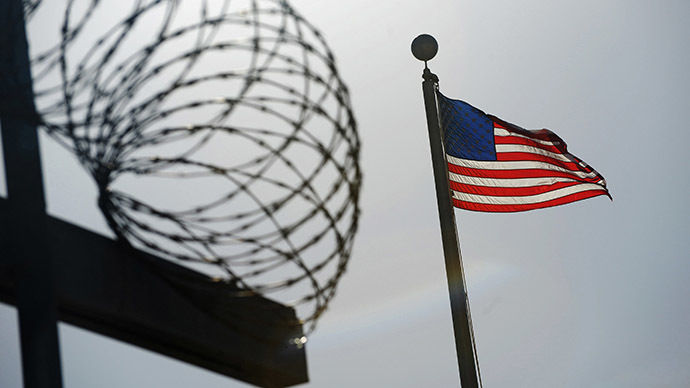A federal judge ruled Thursday that the Senate’s nearly 7,000-page report on the CIA’s torture practices during interrogations in the wake of 9/11 will not be made public, marking a setback for civil liberties advocates.
So far, Senate leaders have only released the 480-page executive summary of the so-called torture report, which revealed numerous gruesome details about the CIA’s post-9/11 interrogation practices. The fate of the full report has been up in the air, however, since Republicans took control of the Senate during the most recent midterm elections.
We tortured some folks. But we really don't want to talk about it so please stop asking. http://t.co/PSlEfP8E5u
— Manolete John Garcia (@MJGarciaKCMO) May 22, 2015
Washington, DC US District Judge James E. Boasberg, in his 26-page decision, said the complete report compiled by the Senate Select Committee on Intelligence, and the related “Panetta review,” are exempt from the dictates of the Freedom Information Act. He said the Senate Committee report remains under congressional control and Congress made sure to exempt itself from FOIA requests.
“Congress has undoubted authority to keep its records secret, authority rooted in the Constitution, longstanding practice, and current congressional rules,” Boasberg stated.
READ MORE: Scottish prosecutors demand unredacted CIA torture report to aid investigation
Senator Diane Feinstein (D-California), as committee chairwoman when Democrats controlled the Senate in December 2014, forwarded a copy of the full report to the CIA and the White House. She sent a letter to President Barack Obama encouraging him to use the full report in the future development of CIA programs. Yet she held off seeking declassification of the full study.
Her successor on the intelligence committee, Sen. Richard Burr (R-North Carolina), has demanded the Obama administration return all copies of the final report immediately, and that it “not be entered into any Executive Branch system of records,” which would make it susceptible to an FOIA request.
“At the end of the day,” Boasberg wrote, “the [American Civil Liberties Union] asks the court to interject itself into a high-profile conversation that has been carried out in a thoughtful and careful way by the other two branches of government. As this is no trivial invitation, it should not be blithely accepted.”
“(The ACLU) and the public may well ultimately gain access to the document it seeks,” Boasberg added. “But it is not for the Court to expedite that process.”
READ MORE: 10 most shocking facts we found in CIA torture report
The ACLU said it disagrees and was disappointed by the judge’s decision
“The direct, contemporaneous evidence shows that the full torture report is subject to FOIA because Congress sent it to the executive branch with instructions that it be broadly used to ensure torture never happens again,” Hina Shamsi, director of the ACLU National Security Project, said in a statement, according to McClatchy Papers.
“The Senate’s landmark investigation into a dark period of our nation’s history should not stay behind closed government doors, but needs to see the light of day.

